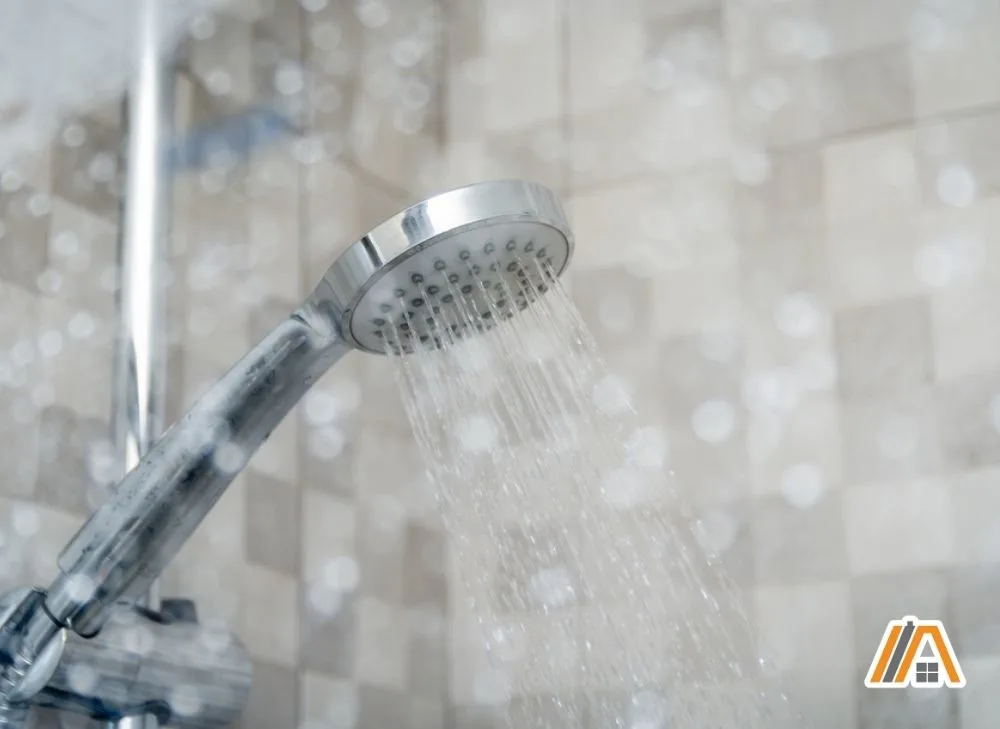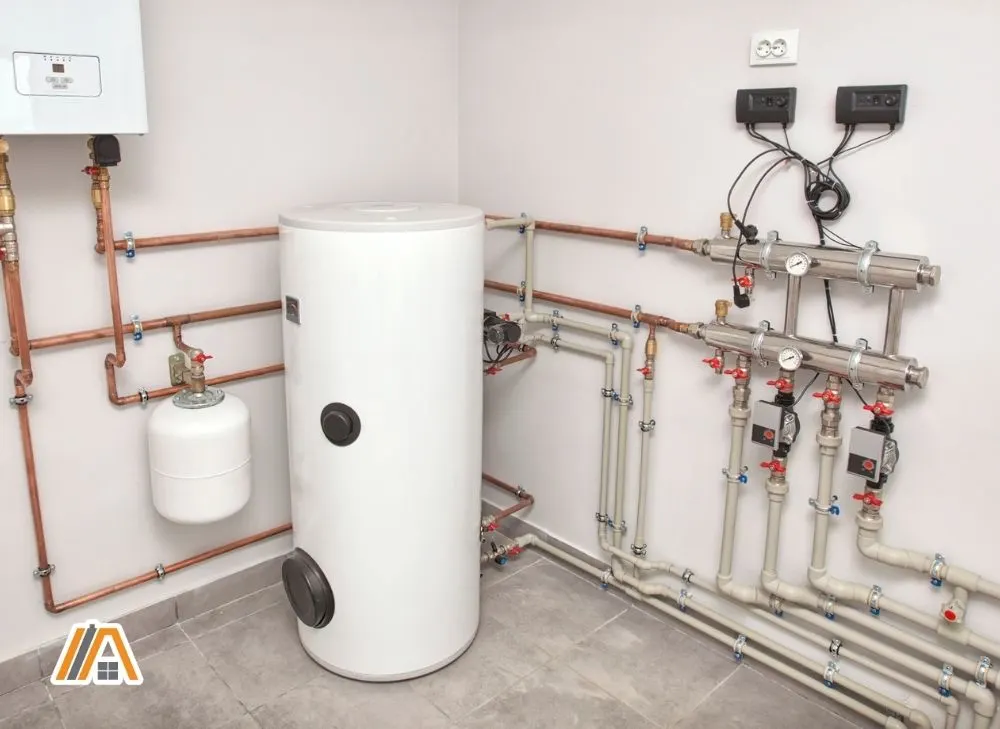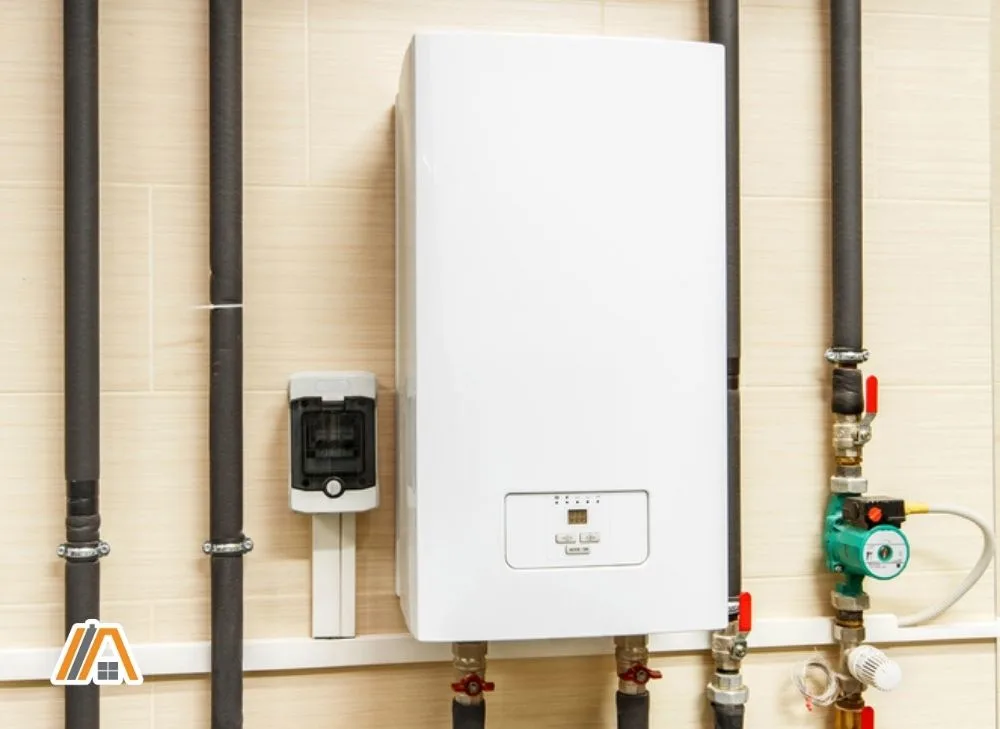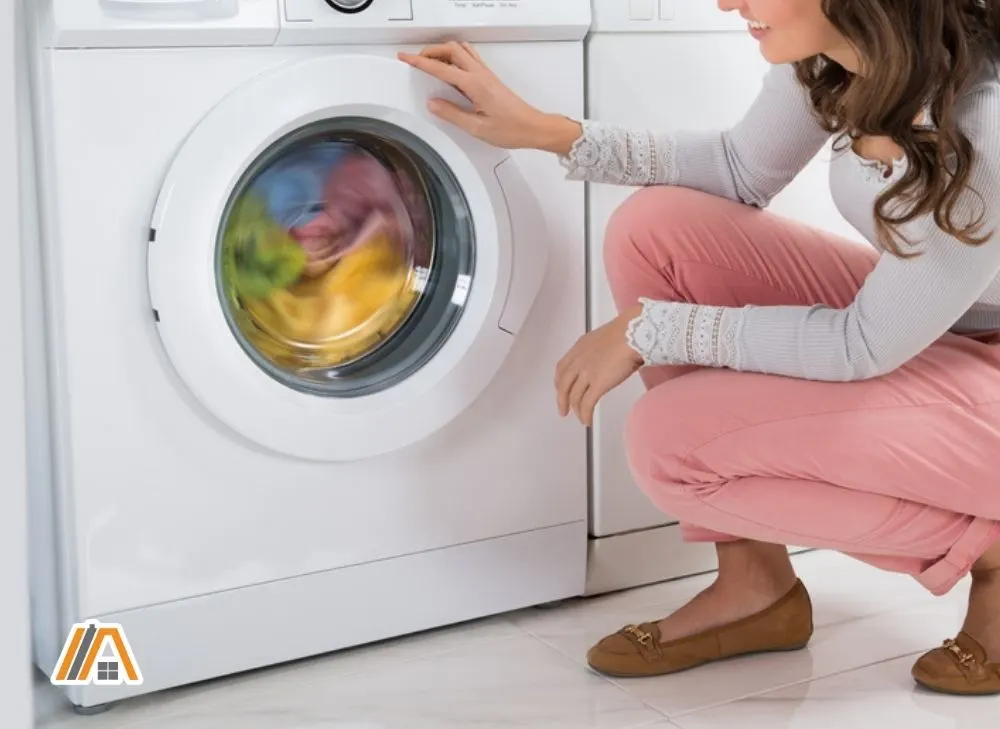Don’t you just hate it when you get in the shower after a long, hard day at work, only for your relaxing warm water to turn ice cold in a few minutes? Liquid ice running down your back when you need hot water to loosen your tense muscles is not what you signed up for. So why does it keep happening?
It can be a bit of a challenge to figure out what is actually causing the problem or how to fix it. In this article, we will explore what is specifically causing you to not have hot water, the pros and cons of different water heaters, and ways to keep your hot water from running out.

The most common cause for running out of hot water is from using too much hot water for different appliances at the same time. However, if the water lasted longer in the past while using the same amount of water there could be a problem with your water heater.
Why Does My Hot Water Run Out So Fast?
With your water heater being the source of the second-largest expense on your utility bill, you are going to want to make sure that you are getting what you pay for. Water heaters are probably one of the most important and most used pieces of household equipment, but sometimes the water heater is overworked, trying to supply hot water to too many appliances at once.

Other reasons for running out of hot water include:
- The water heater tank size is too small—If you have a large house, or you have many people living in your house, your hot water could be used up fairly quickly if you do not have the right size of tank.
- You have a tankless water heater—Some water heaters don’t have a tank to store hot water. That means the heating element has to be very powerful to keep up with the demand of several taps/appliances. While this can save energy and money on your utility bill, it means that you are more likely to spread its abilities to provide hot water for your house too thin.
- Sediment has built up in your water heater—If you aren’t cleaning out your water heater enough, then sediment and minerals can build up in your water heating system, which can cause certain parts of your water heater to not work properly.
- Something in your water heater unit is damaged or worn out—It’s possible that you have a malfunctioning thermostat, a broken dip tube, or a damaged aluminum rod if you have a gas-powered water heater. But beware, a repair can be costly.
- The heating element on your water heater is burned-out—If the heating element is old or not large enough, it won’t be able to heat up all the water the tank can hold. Sometimes the heating element can burn out or lose functionality because of sediment buildup.
- The temperature on the water heater is set too low— On most water heaters it is possible to set the temperature from 100 °F to 160 °F Before you rush and turn it up all the way read my article about turning the water heater all the way up.
With these various potential causes of low hot water, it is important to take other considerations into account to figure out which applies to you. You need to think about your hot water-using habits, the age of your water heater, water heater maintenance habits, and the type of water heater you have.
How Long Should My Hot Water Last? (Types of Water Heaters)
There are many different types of water heaters, and each type has its pros and cons about it, including their abilities to hold and sustain hot water. By understanding which type of water heater you have, you can better problem-solve your hot water issues and decide if your water heater is the right fit for you.
Storage Water Heaters
This type of water heater is the most common in households. By providing a tank where hot water can be stored, it usually allows for more hot water to be interspersed throughout the house, but it depends on the size of the tank. They will supply about two thirds of its tank as hot water because the other third is cold water coming in to be heated up.

Ex) A 60-gallon tank can only supply around 40 gallons of hot water at any time. The average shower uses 2 gallons per minute, making this tank good for a 20-minute shower.
A good rule of thumb is to have a tank capacity of 10-15 gallons per house occupant.
Types of Storage Water Heaters
- Regular (Life Expectancy: 10-15 years)—The typical storage water heater has the most affordable purchase price and fits with most homes’ energy supplier, which is through electric or natural gas. However, it can end up costing a lot to keep the water in the tank heated, driving up energy costs and more easily wearing down water heater parts.
- Heat Pump (Life Expectancy: 10-15 years)—The heat pump provides indirect heat from the surrounding air to heat up its tank, making it more energy efficient than regular storage water heaters.
- Solar (Life Expectancy: 10-11 years)—This type of water heater is relatively new to the water heating scene, but it is 50 percent more efficient than gas or electric water heaters. It uses the natural energy of the sun to heat up its tank. You have to beware of cloudy days, though. If the sun isn’t shining as much, your water will have a harder time trying to heat up. It is also the most expensive type of water heater on the market.
Tankless Water Heaters

Tankless water heaters are good for those homes who do not generally use a ton of hot water all at once. They are much more efficient, but if you have a large household with multiple appliances, it could be difficult for the water heater to keep up with the demand for hot water.

Ex) On average, tankless water heaters provide between 2 and 5 gallons of water per minute. Smaller tankless heaters can only provide hot water to one appliance at a time.
Types of Tankless Water Heaters
- Regular (Life Expectancy: 20+ years)—Tankless water heaters are much more energy efficient than a storage-type. This is because you do not spend so much energy heating up a whole tank of water. Instead, your hot water flows directly from the water source where it is immediately heated up. They tend to be a little costlier.
- Tankless Coil and Indirect (Life Expectancy: 10-11 years)—This system is integrated with the space heating in one’s home, providing indirect heat to warm up the water. While this requires less maintenance and has a lower purchase cost, it is not ideal for many homes, since space heating systems are only used during certain months (or not at all for homes in warmer climates).
9 Benefits of a Tankless Water Heater
How to Prevent From Running Out of Hot Water
After you’ve figured out which type of water heater you have, you can start taking steps to keep from running out of hot water. There are multiple things you can do before you reach your last resort of contacting a plumber to check out what might be wrong with your unit.
Here are some ideas that can hopefully help cure your problem of small spurts of hot water.
Use less water—This can be achieved by using efficient shower heads and taps. Here is a shower head from amazon that uses 1.8gpm instead of the usual 2.5 gallons per minute. This will let you extend your shower duration by 40 percent.

Take shorter showers—This is another great way to use less water. Use a timer to make sure you, and everyone in your household, is spending less time in the shower.
Schedule your showers—Try creating a schedule in your household to keep people from showering at the same time or even within the same hour. If some people shower in the morning and some in the evening, you are less likely to completely run out of hot water.
Use eco-mode—Many dishwashers come with an eco-mode that uses less water in a more efficient way. Set your dishwasher to eco-mode when you know you’ll have showers or other appliances going at the same time.
Wash clothes in cold water—While delicate clothing can only be washed in cold water, other clothing can be washed in cold water as well. You can even find special detergents that are made specifically for washing clothes in cold water.

Use a more efficient unit—If your water heater is fairly old, it might not be performing as efficiently as it used to. You might want to check into replacing your water heater for a newer, more efficient one.
Use a larger unit—Sometimes, all you need is a larger water heater with a larger tank. If that’s the case, then you’ll want to decide when your family uses the most water at one time (“peak hour” demand). Then check the Department of Energy’s estimate use of water for certain tasks and appliances. Finally, with your own estimate, find a hot water tank with a First Hour Rating that is 1-2 gallons within your peak hour demand number.
If these tactics do not work, or are not feasible for you, your last resort is to contact your plumber to figure out what is wrong with your water heater. It could be that you need to repair or replace parts or all of your water heater.
